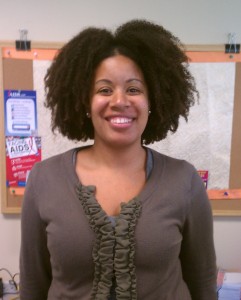Women and Technology
Topics

Last month, we talked about working with leaders in racial/ethnic minority communities to increase the use of health technology and to encourage technological innovation. On the heels of National Women and Girls HIV/AIDS Awareness Day, we wanted to look at the same issue from the vantage point of women.
Knowing your audience is good. Co-creating with your audience is even better. We encourage everyone to learn more about how women are using social media and technology and to think of ways to collaborate with women in your work.
How are women using social media?
According to the Pew Internet and American Life Project, women were “significantly more likely than men to use social networkingExit Disclaimer—10 percentage points higher, on average. With the exception of Reddit, women used social media more than men for all of the social media sites in Pew’s poll.
Women in Technology and HIV
Although they are underrepresented in technology careersExit Disclaimer, women do hold significant leadership positions in the field. Marissa Mayer at Yahoo! and From HIV.gov’s point of view, women who are using their technical backgrounds to address the HIV epidemic provide different—and vital—perspectives. We asked several HIV.gov team members and other partners how and why they are involved in new media and/or technology? Here’s what some of them had to say:Exit Disclaimer

Tori Garten - Chief , the New Media and Web Policy Branch, NIAID/NIH
“I got started in “digital communications” in the late 90’s when I read “Learn HTML in 14 Days” and switched from a desktop publishing job to work for a dot.com that provided web sites and webcasting to the health industry. I feel it is important to contribute to “the common good” in whatever you choose to do, so assisting the public health sector to use communications technologies to not only share information but to support a dialogue between citizens and government is important to me. Social media supports that dialogue. However, I think social is larger than just social media – the concepts behind social media are impacting business dynamics - the who’s and how’s of business. Our audiences for social messaging and dialogue may be handled by one set of tools, and our network for social business aspects be handled by another set of tools – all of which are constantly evolving, and hence we are constantly evaluating where we are and where we are going.”

Michelle Samplin-Salgado - New Media Strategist, HIV.gov
“My interest in technology started when I was a Peace Corps volunteer and asked to create a website to help artisan women promote and sell their products. That was in the late 90's, so social media wasn't really a "thing" yet, but I was intrigued with the idea of creating something in Ecuador that could reach people around the world. I learned basic HTML, and while I had always seen myself as more of a public health/communications person and less of a “techie,” I will never forget the first time I used HTML to make a word “<big>” and then “<blue>.” When I moved back to the U.S., I took a web and graphic design course that was taught by two women. Having female role models who embraced technology made a huge difference for me. Being able to marry my passion for public health with the ability to connect and engage with people using technology and new media inspires me each and every day.”

Yumna Bahgat - New Media Coordinator, HIV.gov
“My passion for public health and my belief that technology can provide quick solutions to impact people's lives led me to work on the HIV.gov new media team. Technology has significantly altered the way we communicate with each other and receive information. I work in this field because I want to creatively influence the way communities find information about their health. We are just at the tipping point of the endless possibilities of technology, and I wanted to be a part of utilizing that technology to make people's lives easier and healthier.”
Co-creating with women offers diversity of ideas and greater opportunities to innovate. If women are your target audience, consider co-creating your social media strategy or technology offerings with them.
Have you created any tools to promote women’s health? Is there a woman in technology who inspires you?